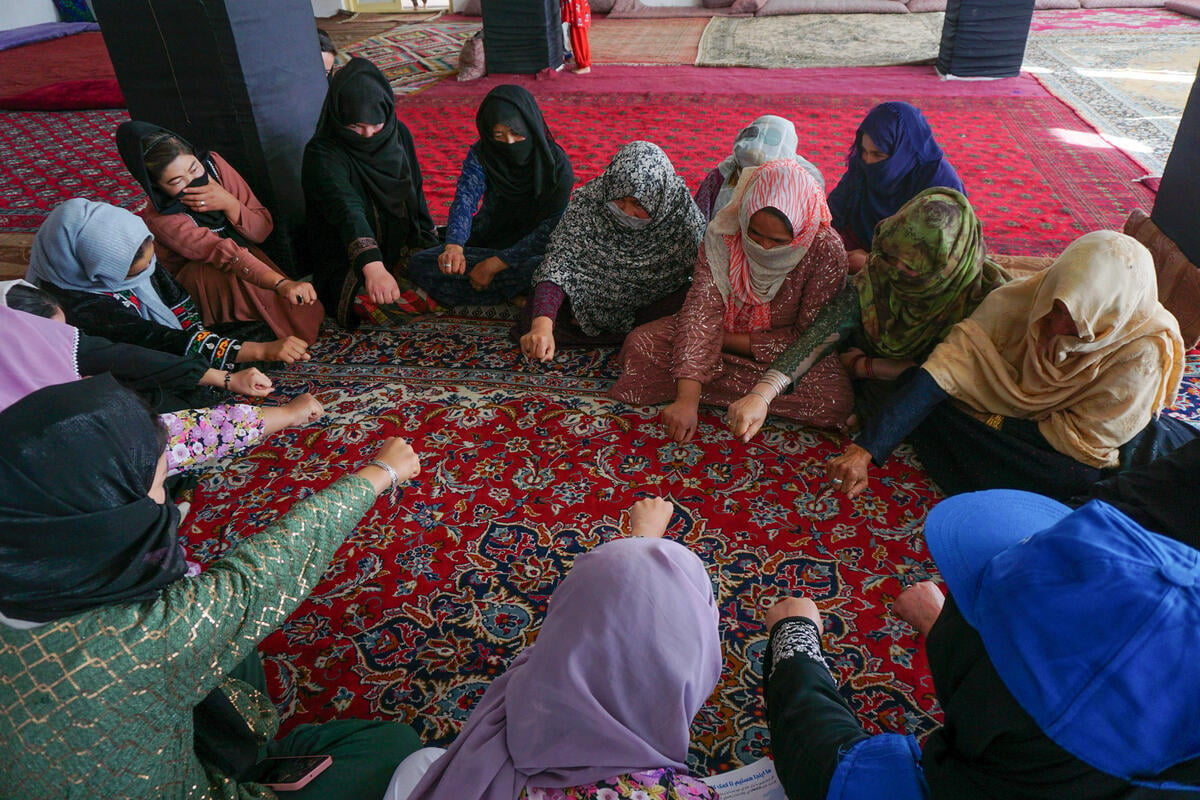Guterres hails Afghan accession to refugee convention
Guterres hails Afghan accession to refugee convention
2 September 2005
GENEVA - U.N. High Commissioner for Refugees António Guterres today welcomed Afghanistan's accession to the 1951 Convention relating to the Status of Refugees and its 1967 Protocol, saying the decision was especially significant for a country that for decades was the origin of one of the largest populations of refugees and asylum seekers in the world.
"It is possible at times to forget the true meaning of the refugee Convention, but if anyone can understand its significance, it is the people of Afghanistan," Guterres said. "During the long, dark years of fighting and extremism, millions of Afghans had to flee their homeland to seek refuge elsewhere. It is testimony to the remarkable progress Afghanistan has made on the road to recovery that it is now able to join the Convention."
The accession, which takes effect this week, comes after several months of close collaboration between UNHCR and Afghan authorities on the issue. With it, Afghanistan becomes the 146th country to ratify either the 1951 Convention or its 1967 Protocol. The last previous ratification was in November 2003, when St. Vincent and the Grenadines signed the Protocol.
Both Iran - which has hosted millions of Afghan refugees over the years - and Afghanistan have now signed the Convention. UNHCR hopes that Pakistan, which has also generously hosted millions of Afghans, will soon join as well.
Afghanistan's accession enshrines in international law the country's long-standing tradition of asylum. Even throughout its troubled recent history, Afghanistan kept its doors open to refugees - notably those from Central Asia like the tens of thousands of Tajiks who fled their country's civil war in the early 1990s.
Since the fall of the Taliban in late 2001, more than 3.5 million Afghans have repatriated from neighbouring Iran and Pakistan in one of the largest refugee repatriation operations in UNHCR's 54-year history. In addition to repatriation, the U.N. refugee agency has been working in Afghanistan to support the authorities' efforts to reintegrate the millions of newly-returned people.
"The accession to the international refugee Convention and protocol is a very significant step for Afghanistan," the Afghan Minister for Refugees and Repatriation, Dr. Azam Dadfar, said in Kabul. "So many Afghans have experienced exile and know how important it is to be treated with respect and dignity as refugees. We are, therefore, particularly pleased to be joining the community of signatory states, to strengthen our co-operation with the Office of the United Nations High Commissioner for Refugees and to add our voice to those committed to provide protection to refugees. Afghanistan will be proud to respect its obligations under these important international instruments."
There are now just under 1 million Afghan refugees in Iran. A recent census showed that more than 3 million Afghans, not all of whom are "of concern" to UNHCR, reside in Pakistan. While it is expected that a significant number will choose to repatriate, it is also likely that some Afghans will want to remain in their countries of asylum, where some have been living for decades as well-integrated, productive members of society.
In recognition of a return to more normal conditions in the region, consultations have been underway between Afghanistan, Iran, Pakistan and the international community on the development of a broader management framework that would provide not only for refugees, but for other forms of population movement. In this context, Afghanistan's accession to the Convention can be welcomed as yet another step towards greater regional stability and co-operation.





